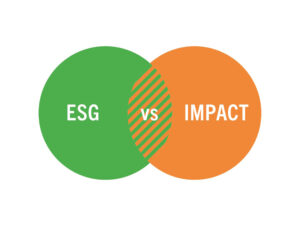The financial sector has long been accused of prioritizing profit over the principles of its business, but an increasing movement is challenging the status quo. Ethical banking is a major shift in the way that institutions function, placing the same importance on environmental responsibility and social sustainability alongside financial return. The banks are aware of what the effects of their investment and services are on the communities they serve and the environment, resulting in a more sustainable and fair financial system. The need to understand ethical banking is becoming more crucial as consumers look for solutions to make sure that they align their financial decisions with their ideals.
The Core Principles of Ethical Banking
Ethical banking is based on several basic principles that differentiate it from traditional banking practices. The main principle is responsible lending and investing, which means that banks take care to consider the impact on the environment and society of their financial choices. These institutions do not support businesses that are harmful, like weapons production, fossil fuels, or businesses that employ poor working conditions. In contrast, they look for opportunities to fund renewable energy projects and affordable housing projects as well as small enterprises that benefit their communities. Transparency is another important aspect, and ethical banks are openly providing information on where they put their funds and the way they evaluate lending decisions. This transparency increases trust and enables the customers to make informed decisions regarding their banking relationship.
How Ethical Banks Differ from Traditional Banks
The differences in the operation of traditional and ethical banks go well beyond the marketing message. While traditional banks focus on maximizing profits for shareholders, ethical banks balance their profits with their mission, frequently accepting lower returns in order to meet their environmental and social objectives. Traditional banks can invest in any profitable venture, regardless of its effects, but ethical banks have strict screening processes to make sure their investments are in line with their core values. The structure of decision-making also differs dramatically, with many ethical banks engaging community members and stakeholders in their governance practices instead of relying on the interests of shareholders. In addition, ethical banks typically employ more prudent lending practices, focusing on the long-term viability over aggressive growth strategies that could be detrimental to their values.
Environmental Sustainability
Environmental concerns play a major part in ethical banking practices that influence everything from day-to-day business operations to major investment decisions. They actively eliminate fossil fuel firms and instead redirect funds towards renewable energy projects and energy efficiency projects as well as sustainable farming. A number of ethical lenders have been able to achieve carbon neutrality within their operations and are working to reduce negative environmental effects of the lending portfolios they manage. They typically offer green mortgages with favorable terms for homes that are energy efficient and offer specialized financing to purchase solar panels, electric cars, and other eco-friendly purchases. The commitment to sustainability extends to their business activities, with a number of ethical banks adopting processes that are paperless, using renewable energy in their premises, and adopting sustainable practices into their corporate structure.
Transparency and Accountability
Transparency is the cornerstone of ethical banking. The banks are publishing regular reports on their lending policies, investment decisions, and impact metrics. In contrast to traditional banks, which can conceal their investment practices, ethical banks offer clear details on which industries and businesses receive funding. They typically release annual impact reports that quantify their contribution to environmental and social objectives and make it easier for customers to know how their funds are utilized. This transparency also extends to fees and ethical banks, with many providing straightforward pricing with no fees hidden or complicated fee schedules. Regular stakeholder involvement ensures that banks are accountable to their customers and continually improve their methods according to feedback and changing requirements.
Challenges and Criticisms
Although they have good intentions, ethical banks face a myriad of issues and critiques that impact their effectiveness and growth. The biggest challenge is the balance between financial viability and ethical guidelines, since avoiding lucrative but risky investments could slow growth and hinder competitiveness. Many critics claim that certain ethical banks are guilty of “greenwashing,” using environmental and social messages for marketing purposes but without making major modifications to their business practices. It is important to note that the definition of “ethical” itself remains subjective, and different institutions interpret ethical guidelines in different ways, which can lead to inconsistent practices across the industry. Furthermore, ethical banks typically face limitations in scale because their limited lending practices and cautious growth strategies may stop them from achieving the size required to compete against traditional banks or provide more extensive geographic areas.
How to Choose an Ethical Bank
Finding a bank that is ethical is a careful study and analysis of your personal values and financial requirements. Begin by reviewing the bank’s policies regarding investment and lending and look for explicit commitments to stay away from negative industries and to support positive initiatives. Check their transparency reports as well as impact statements to see how they evaluate and share their environmental and social impact. Examine the bank’s certifications and affiliations with organizations such as theGlobal Alliance for Banking on Values, which offers an independent validation of ethical business practices. Examine the aspects of banking that are practical, such as available services and fees, as well as digital banking capabilities and branch locations, to ensure that the bank is able to meet your requirements. Also, take into consideration the stability of the bank’s financial position and compliance with regulatory requirements to ensure your bank accounts remain secure while also supporting ethical business practices.
Taking Action for a Better Financial Future
Ethical banking goes beyond the choice of a financial service; it’s a chance to align your finances with your ideals and help create positive change. These banks demonstrate that they can operate effectively while placing both the planet and its people. As the industry continues to grow and develop, ethical banks are proving that responsible banking practices generate sustainable profits for all parties. The choice to select ethical banking might seem minor at a personal level, but collective action can create significant changes in the world of finance. By assisting banks that are committed to environmental and social ethical practices, consumers can create a more fair, financially sustainable system that is beneficial to all.
FAQs
1. Are ethical banks financially solid?
The majority of ethical banks have strong financial stability by implementing prudent lending practices and diversifying portfolios; however, each institution needs to be assessed on the basis of their financial and regulatory compliance reports.
2. Do ethical banks provide the same benefits as conventional banks?
Many ethical banks offer a variety of services that include checking and savings, loans, and even digital banking; however, certain services may be limited in comparison to larger traditional banks.
3. Are the fees in banks that are ethical more?
The fees charged by institutions vary; however, the majority of ethical banks offer cost-effective pricing and transparent fee structures, with lower costs due to their emphasis on customer service and not the pursuit of profit.



